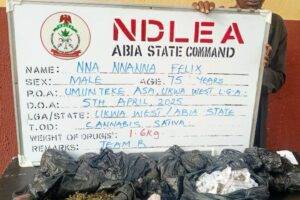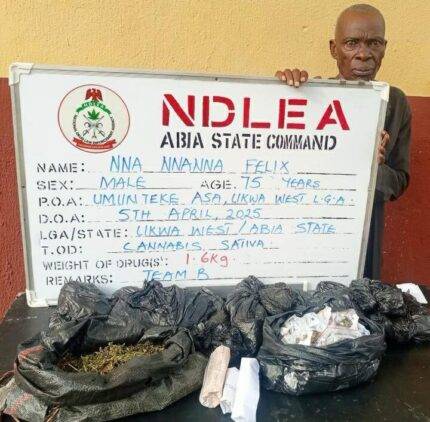Process and Industrial Developments is said to be assisted by 3 Nigerian individuals at the center of a scheme to defraud the Nigerian government as the court documents and testimonial evidences have shed light on the controversial case. The key figures in this intricate web of deceit include Grace Taiga, former head lawyer for the petroleum ministry; Adetunji Adebayo, executive chairman of Nigerian gas company GFD Energy; and Mohammed Kuchazi, P&ID‘s commercial director.
The court’s forthcoming decision on the P&ID case carries immense significance for Nigeria’s economy. Financial analysts warn of potential catastrophic shocks that could regress the nation to an era of financial instability and creditworthiness concerns.
Secrecy Surrounding P&ID Payouts For Three Nigerians Exposed
The division of the proceeds from the damages awarded to P&ID has remained shrouded in secrecy for an extended period. However, Grace Taiga’s recent admission during her testimony revealed her expectations of receiving a portion of the award. The exact amount she anticipates from P&ID co-founder Brendan Cahill remains undisclosed. Their involvements can only be summarized as follows:
- Grace Taiga’s Admission Reveals The Truth
Grace Taiga specifically confessed in court under oath to having “expectations” of receiving a share from Process and Industrial Developments co-founder Brendan Cahill. Though the exact amount remains undisclosed, but documents available to court is showing commitments ranging from $200,000 to $500,000. Cahill clarified that these were not firm commitments but reassurances of future benefits.
From the very beginning, when the contract was awarded, Grace Taiga was at the heart of the deal’s negotiations. She played a pivotal role in crafting the contract terms recommending that the then PDP administration’s petroleum minister, Rilwanu Lukman, sign a memorandum of understanding with P&ID in 2009 and witnessed the signing of the gas contract the following year. Under this agreement, the government would provide wet gas to Process and Industrial Developments for two decades, with the processed resource being divided between the two parties. The government’s share was intended to support the national energy grid.
The P&ID scandal takes an intriguing turn as Grace Taiga, once involved in brokering the gas deal, now considers herself “part of the family” at Process and Industrial Developments. This revelation raises concerns about a potential conflict of interest, as Taiga stands to benefit from the company she previously dealt with as a public official. The opacity surrounding her share of P&ID’s profits challenges her credibility and further complicates this intricate scandal.
- Adetunji Adebayo’s Claim
Adetunji Adebayo, the executive chairman of GFD Energy, emerges as a pivotal figure in the case. An affidavit by Cahill suggests that Adebayo could be entitled to a substantial $1.4 billion, equivalent to 10 percent of the arbitration income. However, the actual amount remains uncertain.
- Mohammed Kuchazi’s Entitlement
P&ID’s commercial director, Mohammed Kuchazi, has claimed entitlement to 3 percent of the award, totaling approximately $340 million. This entitlement is based on an agreement he reached with P&ID co-founder Michael Quinn, as confirmed by Cahill’s affidavit. Kuchazi’s background in Nigerian politics and his friendship with Minister Lukman since the 1960s have raised questions about his involvement in the case.
Denials and Government Accusations
Despite the revelations and claims, all three Nigerian individuals continue to deny any involvement in or receipt of proceeds from the case. In parallel, the Nigerian government has persisted in its accusations, alleging that Adebayo and Kuchazi bribed Nigerian officials on behalf of P&ID. P&ID and Kuchazi vehemently deny these allegations.
The Foreign Collaborators
The Process and Industrial Developments collusion with Nigerian officials extends beyond its Nigerian accomplices. Michael Quinn, an Irish former band manager, and his business partner, Brendan Cahill, are identified as two foreigners involved in the elaborate scheme. Court papers reveal that Process and Industrial Developments was intentionally registered to exploit developing countries, including Nigeria, where officials were willing to compromise their patriotism for personal gain.

The unfolding P&ID case involving these Nigerian individuals and their foreign collaborators paints a complex and disturbing picture of corruption and attempted fraud on an unprecedented scale. As the court’s decision looms, Nigeria’s economic stability hangs in the balance, and the nation’s journey towards accountability and justice continues.
Origins of the P&ID Scandal
The P&ID scandal, now a symbol of alleged corruption and fraudulent practices, traces its roots to the late 2000s during the PDP administration of then-President Umaru Musa Yar’Adua. The Nigerian government, faced with an energy supply crisis, explored the untapped gas reserves of the Niger Delta region. Process and Industrial Developments seized the opportunity, proposing an ambitious project to construct and operate a gas-processing plant near Calabar, a city in the southern part of Nigeria, despite having no prior experience in such endeavors.
Process and Industrial Developments Project Failure and Blame Game
Regrettably, the ambitious gas-processing project never materialized. P&ID failed to construct the planned plant, and Nigeria did not provide the agreed-upon gas supply. P&ID blamed the Nigerian government for the project’s failure and successfully convinced an arbitration panel that they had been wronged. The panel awarded P&ID damages amounting to the hypothetical profit the company would have earned over the contract’s lifespan – an astonishing $6.6 billion, plus daily interest of $1.3 million from the contract breach.
Suspicion and Financial Transactions
Amidst these revelations, evidence emerged that Grace Taiga had received approximately $10,000 from individuals and entities affiliated with P&ID before the contract signing. In response, Taiga acknowledged receiving these funds but claimed they were gifts from a family friend, Michael Quinn, a co-founder of Process and Industrial Developments. The Nigerian government, however, began to suspect an intricate fraud, driven in part by P&ID’s inexperience and the questionable financial transactions associated with Taiga.
President Buhari’s First Pledged to Get to The Bottom of The P&ID scam
The Process and Industrial Developments (P&ID) scandal attracted the attention of then-President Muhammadu Buhari, who vowed to confront what he referred to as the “P&ID scam” during his speech at the United Nations General Assembly in 2019. He alleged that this scheme aimed to siphon billions of dollars from Nigeria, a pledge that garnered support from anti-corruption campaigners.
P&ID scandal underscores the urgent need for transparency, accountability, and a resolute stance against corruption in Nigeria’s dealings with both domestic and international entities. As the High Court deliberates on this intricate case, it presents an opportune moment for the Nigerian government under the leadership of President Tinubu to assertively pursue similar instances where its interests and financial stability have been jeopardized. By bringing those who have attempted to defraud the nation to justice, Nigeria has a chance to recoup lost revenue and mitigate the severe financial challenges that have burdened its economy, contributing to the devaluation of the Naira.
It is imperative that Nigeria takes a proactive stance in identifying and rectifying instances of attempted fraud or corruption, both past and present. By doing so, the country can not only reclaim its financial losses but also send a powerful message that it will not tolerate any actions that undermine its economic stability and its people’s well-being. The Process and Industrial Developments case serves as a crucial catalyst for Nigeria to strengthen its resolve, ensuring that similar incidents are addressed swiftly and comprehensively, thereby safeguarding the nation’s economic future and the value of its currency.
Table of Contents
Discover more from OGM News NG
Subscribe to get the latest posts sent to your email.














